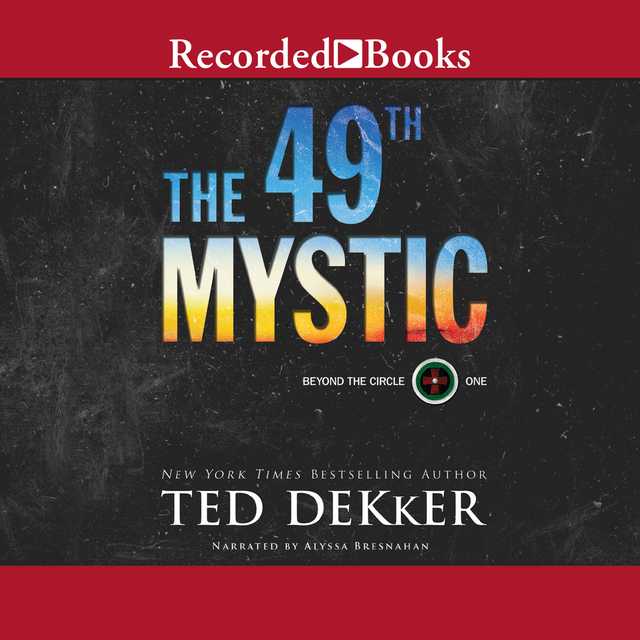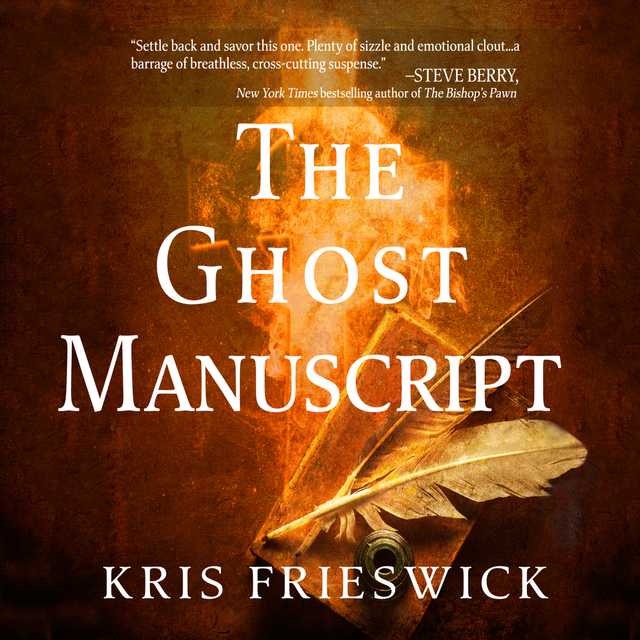Some Remarks Audiobook Summary
“Neal Stephenson has made a name for himself as a writer whose imagination knows no limits.”
—Salon
#1 New York Times bestselling author Neal Stephenson is, quite simply, one of the best and most respected writers alive. He’s taken sf to places it’s never been (Snow Crash, Anathem). He’s reinvented the historical novel (The Baroque Cycle), the international thriller (Reamde), and both at the same time (Cryptonomicon). Now he treats his legion of fans to Some Remarks, an enthralling collection of essays–Stephenson’s first nonfiction work since his long essay on technology, In the Beginning…Was the Command Line, more than a decade ago–as well as new and previously published short writings both fiction and non. Some Remarks is a magnificent showcase of a brilliantly inventive mind and talent, as he discourses on everything from Sir Isaac Newton to Star Wars.
Other Top Audiobooks
Some Remarks Audiobook Narrator
Jeff Cummings is the narrator of Some Remarks audiobook that was written by Neal Stephenson
Neal Stephenson is the bestselling author of the novels Reamde, Anathem, The System of the World, The Confusion, Quicksilver, Cryptonomicon, The Diamond Age, Snow Crash, and Zodiac, and the groundbreaking nonfiction work In the Beginning . . . Was the Command Line. He lives in Seattle, Washington.
About the Author(s) of Some Remarks
Neal Stephenson is the author of Some Remarks
More From the Same
- Author : Neal Stephenson
- Termination Shock
- The Rise and Fall of D.O.D.O.
- Quicksilver
- Publisher : HarperAudio
- Abraham
- American Gods [TV Tie-In]
- Dead Ringer
- House of Sand and Fog
- Prey
Some Remarks Full Details
| Narrator | Jeff Cummings |
| Length | 11 hours 36 minutes |
| Author | Neal Stephenson |
| Category | |
| Publisher | HarperAudio |
| Release date | August 07, 2012 |
| ISBN | 9780062190536 |
Subjects
The publisher of the Some Remarks is HarperAudio. includes the following subjects: The BISAC Subject Code is Fiction, Short Stories (single author)
Additional info
The publisher of the Some Remarks is HarperAudio. The imprint is HarperAudio. It is supplied by HarperAudio. The ISBN-13 is 9780062190536.
Global Availability
This book is only available in the United States.
Goodreads Reviews
Bradley
May 28, 2020
There's no other way to put this: It's a grab-bag.You have no choice what has been put in it and sometimes it's a few truly awesome short stories and sometimes it's an interview or two and sometimes it's light, almost spur of the moment ramblings and sometimes it's an in-depth essay (through Wired) the delves (or dives) deep into the history, present, and future of undersea data cables.For some reason I can't quite fathom, my mind keeps swimming around the traveling hacker bits. On the one hand, I thought a great deal of it was delightfully quirky and it gives us a real backbone to the internet at large, from a physical perspective, but on the other hand, I thought it was JUST TOO LONG.Not everyone is going to have the same mileage with it. I'm generally quite patient with tech stuff and it fascinated me to a certain point until I was just -- okay already, I'd love to have a story now. ;)Here are some freaking fantastic highlights tho:The fight between Neal Stephenson and William Gibson! Epic!The debate between Vegging-out and Geeking-out.Genre talk, book talk, book talk, and more book talk. :)But those short stories? Damn... they got me going. And the unpublished book he said he would never finish? GAAAAHHHH! I WANT MY SERIAL MURDERER IN THE SHIRE!
David
October 19, 2020
This is a fun book of essays by one of my favorite authors. The essays cover the gamut of topics; some short, some very long. One of the essays is about trans-oceanic cables, the people and companies involved laying the cables. Very interesting; I was particularly struck by the cables' arch-enemy--fishing trawlers. I can completely empathize, as I was on an ocean experiment where an experimental cable was being placed on the ocean floor in shallow water. A fishing trawler came along on autopilot, about a mile or so from the cable ship, and got caught on the cable. The trawler's captain was clueless, as hails by radio and megaphone failed to get his attention. After some time elapsed, the captain on the trawler brought the cable to the surface and cut the enormous cable, and continued on, oblivious to what he had just done!Some of the essays were humorous, such as the essay about writers such as himself, caught at a writers' convention. The attitudes of some academics toward him blew me over!Another essay was about the tragedy at the Branch Davidian compound in Waco, Texas. The ignorance of some people is just astounding. A colleague of mine was on the local sheriff's negotiating team. He told me about the crass approach of the feds, after they arrived "to help".Such a wide range of topics surely leads to some great--and some not-so-great essays. All in all, it's worth the read.
Clouds
December 16, 2015
This is a really long article - I read it in 4 sittings on my lunch breaks - available online in the Wired archives.It's dated - it's about laying submarine cables in the mid-nineties - but it's fascinating in the same vein as Cryptonomicon or the Baroque Cycle (if you're a fan of Stephenson's novels, you'll like it).I'm a fan of both Stephenson and Wired, so I liked it :-)
Miles
January 01, 2016
Neal Stephenson’s Some Remarks is a highly stimulating read from my favorite living author. This collection of essays and short fiction sheds light on Stephenson’s personal background, writing methods, and modes of information synthesis. As always, we are treated to a very special version of the world––one seen through the eyes of an author who has carefully surrounded himself with some of the most intelligent, curious and capable humans on Earth (and who happens to be one of them himself).Spanning roughly two decades (early 1990s––present), these writings never come together into a coherent whole, but that is clearly not Stephenson’s goal. By his own admission, Stephenson sets out to “conduct a shameless whitewashing of that historical record, picking only the good stuff, and editing even that to make it look better” (1-2). The result is a verbal sausage wrapped in the delectable sheath of Stephenson’s hallmark pith and perspicacity.With the exception of an obnoxious yarn that seemed to glorify tax-dodging through the manipulation of virtual currencies, I didn’t have a strong reaction to the smatterings of fiction in this collection. I’ll focus my comments on the nonfiction pieces, which cover a range of topics and vary considerably in quality. Some essays contain fully fleshed out ideas and arguments, whereas others end before they even get going. One of the difficulties of writing about technology is that an article may already be outdated by the time it reaches the general public, and the danger of obsolescence grows with each passing month and year. New technologies are always in motion, so it’s often impossible to make concrete judgments about their effects on society, which can be permanent, ephemeral or anywhere in between. Fortunately, Stephenson’s writing is so adroit that even his outdated or underdeveloped pieces are still fun and engaging.By far the most impressive offering here is an article Stephenson wrote for Wired in 1996 called “Mother Earth, Mother Board”. It’s a tour de force of innovative “hacker tourism” that outlines the technical, political and economic challenges of running fiber-optic cables across continents and oceans. Stephenson provides an engrossing and cosmopolitan portrait of the individuals and organizations, both current and historical, that gave us a world that “has actually been wired together by digital communications systems for a century and a half” (235).In an era when wireless logistics dominate most laypeople’s interactions with advanced technology and social media, it’s critical to remember that all wireless systems are predicated on a vast infrastructure of physical wires that transmit data almost instantaneously. Stephenson aptly appropriates the image of a wormhole to describe this phenomenon:"Wires warp cyberspace in the same way wormholes warp physical space: the two points at opposite ends of a wire are, for informational purposes, the same point, even if they are on opposite sides of the planet. The cyberspace-warping power of wires, therefore, changes the geometry of the world." (121).Although my lack of technical chops prevented me from understanding the finer points of “Mother Earth, Mother Board,” I could still recognize it as a powerful and unique piece of expository writing. I was awestruck by the technical achievements of globalization and unnerved by the amoral force with which our most powerful technologies embed themselves in our lives and landscapes. It also left me curious about how fiber-optic technologies have changed and/or stayed the same in the two decades since this piece was first published.Another gem in this collection is Stephenson’s “Gresham College Lecture” from 2008. It highlights Stephenson’s views on geek culture and speculative fiction (SF), including an interesting if not particularly novel theory of modern knowledge:"Choose any person in the world at random, no matter how non-geeky they might seem, and talk to them long enough, and in most cases you will eventually hit on some topic about which they are exorbitantly knowledgeable and, if you express interest, on which they are willing to talk, enthusiastically, for hours. You have found their inner geek…This is how knowledge works today, and how it’s going to work in the future. No more Heinleinian polymaths. Instead, a web of geeks, each of whom knows a lot about something. Twenty years ago, we called them nerds, and we despised them; we didn’t like the power that they seemed to have over the rest of us, and we identified them as something different from normal society. Now, we call them geeks, and we like them just fine, because they are us…We’re all geeks now." (78-9)Stephenson echoed this last sentiment in his most recent novel, Seveneves. As much as I’m drawn to Robert Heinlein’s romantic notion that “specialization is for insects,” history has favored Stephenson’s view. The world is far too vast for even the smartest individuals to grasp more than a tiny sliver of available input, and new information is being created and disseminated constantly. But even if we have to give up on the brainy übermensch who will single-handedly lead the way to a new enlightenment, we gain something much more valuable: the concrete, irrefutable reality of our own interdependence, not just with other humans, but with the rest of the natural and physical world.A world where smart folks think they have to get good at everything? That’s stifling. But a world where people excel within their niche of geekdom while using technology to access and utilize the knowledge of others? That’s a recipe for personal contentment and societal progress.Speculative fiction plays a huge role in helping people discover and cultivate their inner geek. Even though I still think the best SF resides in books by Stephenson and his ilk, I’ve been delighted by the recent trend of “competence porn” narratives that have invaded Hollywood (think Interstellar, The Martian, and even films like Spotlight). It’s encouraging to think that the desires of SF fans are becoming mainstream:"SF fans…want to see intelligence at work…they want ideas. They want to learn something or to join with the author in speculating about a future or about a fantastical other world…SF thrives because it is idea porn." (82-3).Speculative fiction is a much more dignified term than “competence porn” or “idea porn,” so I hope it continues to grow in popularity. As a start, bookstores could begin dealing with “the problem that Science Fiction is mysteriously, inextricably conjoined with the seemingly unrelated literature of Fantasy” (68). Separating these two sections, and even creating a separate one for speculative fiction, would help get the word out to geeks-in-waiting that there is a special kind of literature out there for them.Despite the tendency of Stephenson’s enormous brain to keep readers at arm’s length, acolytes like me have nevertheless developed a strong emotional attachment to the man and his writings. Some Remarks reveals interesting details about Stephenson’s background, hinting at the experiences that shaped his brilliance and distinct brand of techno-libertarianism (a perspective I find both legitimate and repellent, depending on the issue/circumstances).I’d no idea that Stephenson had much in common with David Foster Wallace, so his foreword to DFW’s Everything and More was a pleasant discovery. I have an ambivalent relationship with DFW, but loved Stephenson’s appraisal of him:"DFW’s writing reflects an attitude that is lovely: a touching, and for the most part well-founded, belief that you can explain anything with words if you work hard enough and show your readers sufficient respect…[it's] a way of saying here is something cool that I want to share with you for no reason other than making the spark jump between minds. If that is how you have been raised, then to explain anything to anyone is a pleasure. To explain difficult things is a challenge. And to explain the infamously difficult ideas that were spawned in chiliastic profusion during the late Nineteenth and early Twentieth Centuries (Infinities, Relativity, Quantum Mechanics, Hilbert’s problems, Gödel’s Proof) is Mount Everest." (285-6)Not only did these passages help me better understand my own difficulties with DFW’s Infinite Jest but they also describe with preternatural accuracy how I’ve come to feel about Stephenson’s work, which has played an indispensable role in my early adulthood.Some Remarks closes with two essays about why modern humanity has trouble tackling big problems, and a third essay conveying a touching explanation of why Stephenson doesn’t usually write back to fans who contact him. Taken together, they capture precisely what is so appealing about Stephenson’s literary approach: He wants to take the long view on history and societal development, and then stuff it into the moment-to-moment experience of characters that are extraordinary but also deeply human. The result is that it’s impossible to read his work without becoming fascinated by what’s gone before, what’s possible now, and what might be just around the corner.This review was originally published on my blog, words&dirt.
Christopher
August 23, 2012
Perfect for a fan like me (but you can get most of this material online.)I love "Why I am a bad correspondent" "The quality of my e-mails and public speaking is, in my view, nowhere near that of my novels. So for me it comes down to the following choice: I can distribute material of bad-to-mediocre quality to a small number of people, or I can distribute material of higher quality to more people. But I can't do both; the first one obliterates the second."
Josh
August 08, 2017
Not sure how I let this slip by in 2012. Only my favorite author, who, though still in his fifties and as productive as ever, will only write a finite number of books, and reading any of them is one of the top 5-10 things I can be doing at any given time. I guess my excuse is that it's not a novel, it's a compilation of essays, short stories, and magazine columns, some of which are 20+ years old. So like, if I was a true completist I'd have already hunted down all of this stuff. Mostly interesting and enjoyable, definitely recommended for Stephenson fans. Loved some of his thoughts on SF and organizational culture. I keep thinking about "Locked In", his discussion of path dependence. In this example, how the development of rockets for warfare (in both WWII and the Cold War) and the particular geography of the nations involved has locked us into a local maxima of rocket design which is too expensive and impractical to escape. On the other hand, not sure what to think of "The Great Simoleon Caper", a mid-90s story about a then-future VR internet (per Snow Crash, also referred to as the Metaverse) in which hackers and the virtues of digital currency save the day. I loved Snow Crash, but if it had been about bitcoin I would've chucked it in the trash and written him off indefinitely (path dependence!).Also it has a 118-page deep dive into the world of telecommunications cabling. And he made it fascinating. Yep, officially Neal Stephenson.
Kieran
December 07, 2021
Stephenson's essays are easy to read, flow well and are always thought provoking. His essay on deep sea cable laying is an excellent piece of technical writing which incorporates historical insight which shows just how far global communication has come
Miles
November 11, 2020
This is probably mostly/only interesting for Stephenson devotees, but I enjoyed it a lot.
Narantsogt
December 22, 2021
Happy to have found the concept of a hacker tourist
James
January 31, 2017
Neal Stephenson has a large vocabulary, but apparently the word brevity does not appear in it. He is the author of such forest destroying novels as Anathem and Seveneves, each of which flirt with having the page number hit four digits. Some asshole thought it would be a good idea to hire him to write a magazine article, and that's why we have a magazine article listed on Goodreads. Seriously, don't think you will get through this on your lunch break.On the other hand, there is a reason why Neal gets away with writing novels thicker than dictionaries; he is a damn fine writer. What's more, his particular gift in writing is something that couldn't be more useful in our increasingly knowledge driven society. Neal Stephenson can describe and explain complex and technical subjects in a way that is completely understandable and thorough, while also somehow being entertaining. His novels contain lengthy discourses on orbital mechanics, robotics, programming, physics, philosophy, and pizza delivery. So it should not be surprising when I say that he held my attention riveted while he wrote the equivalent of a short novel about a submarine fiber-optic cable.Neal frames his topic by looking back into Victorian history, relating often ironic anecdotes, both from history and form his own personal adventures trotting around the globe doing research for this article and following the construction of FLAG (Fiber-optic Link Around the Globe), exploring the business behind wiring to world together, explaining some of the many difficulties of stretching a cable between continents (and some of the many ways people have failed in this endeavor), and doing all of this and more in lively and clever prose.Don't let the size intimidate you. Read "Mother Earth Mother Board", mother fucker.
Jim
March 13, 2016
Reading Mother Earth , Mother Board a longread from 1996 about data cable infrastructure which is at points tedious but i am being rewarded by paragraphs like these During the 1980s, when Americans started to get freaked out about Japan again, we heard a great deal about Japanese corporations’ patient, long-term approach to R&D and how vastly superior it was to American companies’ stupid, short-term approach. Since American news media are at least as stupid and short-term as the big corporations they like to bitch about, we have heard very little follow-up to such stories in recent years, which is kind of disappointing because I was sort of wondering how it was all going to turn out. But now the formerly long-term is about to come due.The Victorian era was an age of superlatives and larger-than-life characters, and as far as that goes, Dr. Wildman Whitehouse fit right in: what Victoria was to monarchs, Dickens to novelists, Burton to explorers, Robert E. Lee to generals, Dr. Wildman Whitehouse was to assholes. He achieved a level of pure accomplishment in this field that the Alfonse D’Amatos of our time can only dream of. The only 19th-century figure who even comes close to him in this department is Custer. In any case, Dr. Edward Orange Wildman Whitehouse fancied himself something of an expert on electricity. His rival was William Thomson, 10 years younger, a professor of natural philosophy at Glasgow University who was infatuated with Fourier analysis, a new and extremely powerful tool that happened to be perfectly suited to the problem of how to send electrical pulses down long submarine cables.also found here http://www.wired.com/1996/12/ffglass/
Ninakix
March 28, 2015
A really lovely collection of essays and short stories. A really nice collection tells its own stories over the course of its pages. Much of the middle of this book is taken up by an epic article, essay, thing?, about laying down undersea cables. Which is a notable and great piece of writing. One forgets that the Internet, and all of these ideas, are grounded in the physical and the messy. That essay pays homage to that.
Carter
June 28, 2019
Enjoyed the microcosms of NS's thoughts that are evident in the macros of his novels.Some were strong some were not. Though even at the tedious bits I didn't feel like I was wasting my time... many others probably will. Though I've read this outside of the time when some of the "thoughts" were more relevant, I still found insight in the unique thoughts of another.
Florin
July 11, 2015
A riveting collection of essays, short stories and articles by a very appreciated science fiction writer. From Leibniz's philosophy to telecom cable laying, from interviews to book introductions, from short stories to the role of science fiction in Western civilization, "Some Remarks" covers a variety of issues in a style which is both accessible and entertaining. Recommended.
GertJan
January 10, 2014
Aanrader voor zowel hardcore Stephenson fans als voor wie geinteresseerd is beschouwingen over hedendaagse cultuur. Terechte erkenning voor nerd-ness, echte fans, en al die schrijvers die gewoon kunnen leven van hun werk. Maar voor de meesten net zo buitenbeeld als de tieners die massa's fans op Youtube hebben.
Most Popular Audiobooks
Frequently asked questions
Listening to audiobooks not only easy, it is also very convenient. You can listen to audiobooks on almost every device. From your laptop to your smart phone or even a smart speaker like Apple HomePod or even Alexa. Here’s how you can get started listening to audiobooks.
- 1. Download your favorite audiobook app such as Speechify.
- 2. Sign up for an account.
- 3. Browse the library for the best audiobooks and select the first one for free
- 4. Download the audiobook file to your device
- 5. Open the Speechify audiobook app and select the audiobook you want to listen to.
- 6. Adjust the playback speed and other settings to your preference.
- 7. Press play and enjoy!
While you can listen to the bestsellers on almost any device, and preferences may vary, generally smart phones are offer the most convenience factor. You could be working out, grocery shopping, or even watching your dog in the dog park on a Saturday morning.
However, most audiobook apps work across multiple devices so you can pick up that riveting new Stephen King book you started at the dog park, back on your laptop when you get back home.
Speechify is one of the best apps for audiobooks. The pricing structure is the most competitive in the market and the app is easy to use. It features the best sellers and award winning authors. Listen to your favorite books or discover new ones and listen to real voice actors read to you. Getting started is easy, the first book is free.
Research showcasing the brain health benefits of reading on a regular basis is wide-ranging and undeniable. However, research comparing the benefits of reading vs listening is much more sparse. According to professor of psychology and author Dr. Kristen Willeumier, though, there is good reason to believe that the reading experience provided by audiobooks offers many of the same brain benefits as reading a physical book.
Audiobooks are recordings of books that are read aloud by a professional voice actor. The recordings are typically available for purchase and download in digital formats such as MP3, WMA, or AAC. They can also be streamed from online services like Speechify, Audible, AppleBooks, or Spotify.
You simply download the app onto your smart phone, create your account, and in Speechify, you can choose your first book, from our vast library of best-sellers and classics, to read for free.
Audiobooks, like real books can add up over time. Here’s where you can listen to audiobooks for free. Speechify let’s you read your first best seller for free. Apart from that, we have a vast selection of free audiobooks that you can enjoy. Get the same rich experience no matter if the book was free or not.
It depends. Yes, there are free audiobooks and paid audiobooks. Speechify offers a blend of both!
It varies. The easiest way depends on a few things. The app and service you use, which device, and platform. Speechify is the easiest way to listen to audiobooks. Downloading the app is quick. It is not a large app and does not eat up space on your iPhone or Android device.
Listening to audiobooks on your smart phone, with Speechify, is the easiest way to listen to audiobooks.






























